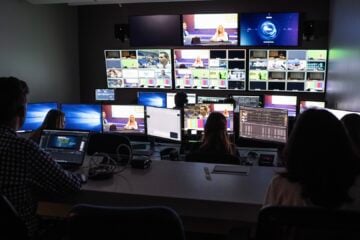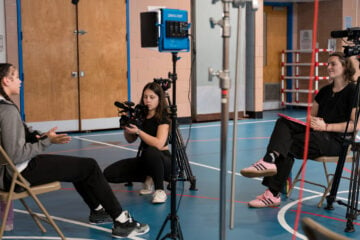Library of Congress acquisition will preserve Kitchen Sisters’ decades of documenting in sound
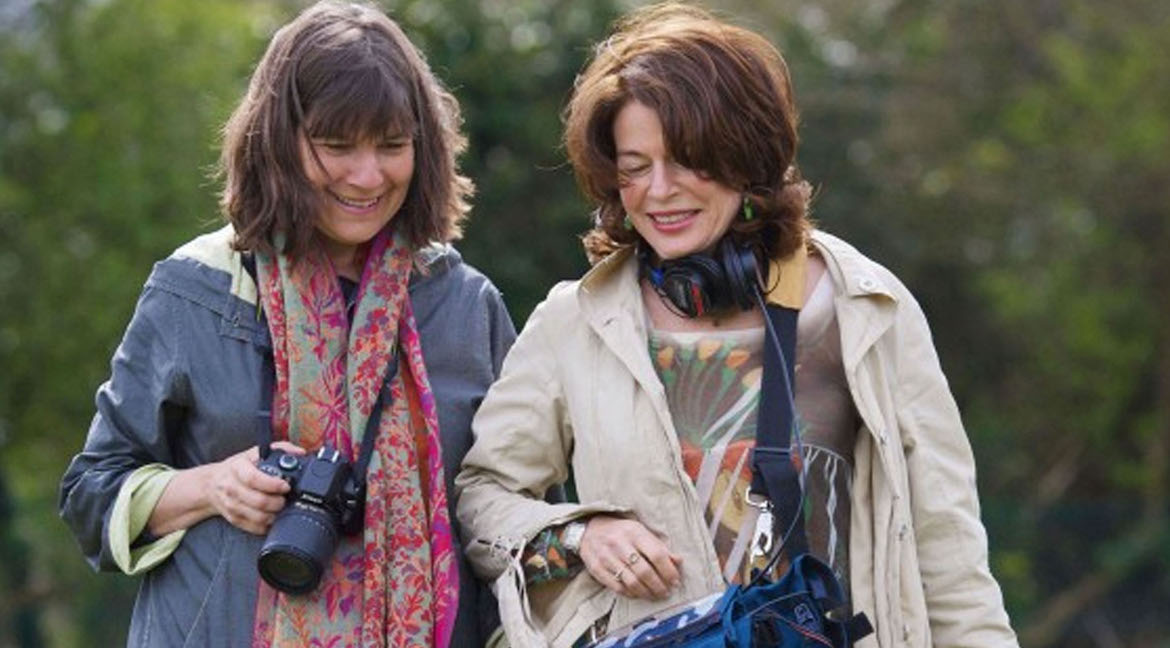
Nikki Silva and Davia Nelson.
Archivists at the Library of Congress will soon begin combing through thousands of hours of audio recorded by The Kitchen Sisters over more than 40 years.
The Library’s American Folklife Center will preserve the recordings along with handwritten production notebooks, transcripts and scripts, postcards, posters and other ephemera. Through an acquisition announced in January, the Sisters, Davia Nelson and Nikki Silva, will transfer roughly 146,400 individual items to the Center over the next three years.
Nelson said the idea was first proposed by Huib Schippers, former head of the Smithsonian Folkways record label. In 2018, Nelson thanked Schippers for his help gathering material for their story about song-catcher and Arhoolie Records founder Chris Strachwitz.
“He said to me, ‘So what’s going to happen to The Kitchen Sisters’ archive?’” Nelson said. “It kind of stopped me in my tracks, and I said, ‘What do you think should happen to The Kitchen Sisters’ archive?’ … When he said, ‘The Library of Congress,’ I was kind of flabbergasted.”
Shortly after, Schippers connected Nelson and Silva with Elizabeth Peterson, director of the American Folklife Center, and they submitted a description of their materials. Last fall they learned the Library had decided to purchase the collection. (The Library does not disclose how much it pays to acquire materials).
For Nelson and Silva, sending their archives to the Library feels like their life’s work has come full circle.
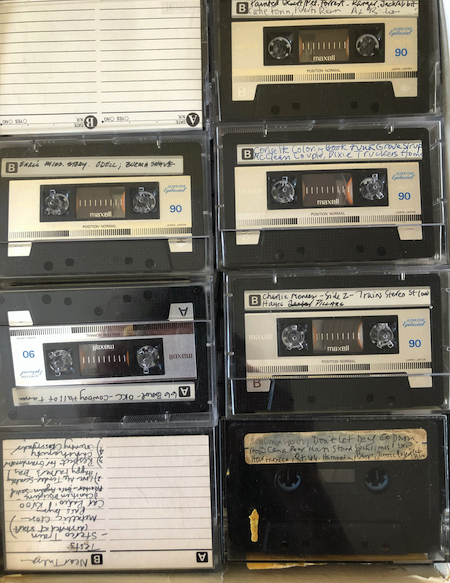
About 40 years ago, the two pioneering radio producers flew from California to Washington, D.C., to search the Library of Congress and National Archives for audio artifacts from World War II.
“They let us just plug in our tape recorder … and take all of this material that they had,” Silva said.
The resulting piece, “War and Separation: Life on the Homefront During World War II,” broadcast by NPR’s All Things Considered in 1982, married news reports, commercials, music and home recordings.
The seed for that project had been planted when the two discovered one such home recording in a box of Silva’s mother’s 78 rpm records.
“It was just a brown sleeve, and it had written on it, ‘To Louie, love Mrs. B.’ And … it said on the label, ‘Louie darling, play this side first,’” Silva recalled. “We just had no idea what it was.”
“We heard this woman standing in her friend’s kitchen, sending this recorded love letter to her husband overseas,” Nelson said. “She says … ‘Stay out of those pubs and away from those barmaids. Do they jitterbug over there?’”
Silva’s parents didn’t know who Mrs. B. was or where the record had come from, but the two radio producers figured there had to be more of these. They soon learned Silva’s mother had sent one to her father while he was deployed overseas.
“He carried that record around all over France when he was in the service and brought it back,” Silva said.
The two began scouring thrift stores and garage sales and asking everyone they met if they had home recordings from the war collecting dust in an attic or basement. They unearthed about eight similar recordings from friends’ mothers and other women around Santa Cruz, Calif. Now these recordings, which may otherwise have been lost to history, will be among the materials housed in the Library of Congress, as long as the original owners of the recordings agree.
“All these people that entrusted their stories over the years, that allowed us into their lives, that trusted us — I’m so happy … that these stories are going to be preserved and taken care of and made available to the next generation of storytellers and documentarians and teachers and students,” Silva said.
Worked ‘like mad’ every day
Nelson and Silva are more than artistic collaborators; they describe each other as “soulmates” and “partners.” They met in the late 1970s in Santa Cruz, where they both lived. Nelson was volunteering at the community radio station KUSP and visiting local elders to record oral histories. She kept hearing the name Nikki Silva.
“At the end of the interviews, people would say to me, ‘You know, there was this young girl here just two weeks ago. … She’s over at the city museum, do you know her?’” Nelson said. “There was this other person sort of walking the same path, but not for radio, for the objects for museum exhibits.”
Nelson decided to call up the Santa Cruz Museum of Natural History and try to find this Nikki Silva person.
Nelson went to the museum around 2 p.m., and the pair sat on the porch overlooking Monterey Bay, Silva recalled. “It was like 7 or 8 o’clock at night when we finished talking,” she said. “… We just decided we really wanted to do something together.”
Silva became co-host of Nelson’s radio show on KUSP, where they interviewed people from the community: “Italian fishermen and midwives, Chinese apple growers, Mexican and Mexican American theater artists,” said Nelson. They also played old jazz, found sound and field recordings. The title of the show was originally Every Wrinkle Tells a Story; they changed it to The Kitchen Sisters to pay homage to a pair of eccentric stonemasons who had worked in Santa Cruz in the 1940s, Kenneth and Raymond Kitchen.
“We are trying to make sound stories as visual as possible.”
Davia Nelson
Silva and Nelson rented a shed from a friend and spent 12 hours a day going through the interviews and archival tapes they collected, shaping them into narratives both specific and universal.
“We worked in it like mad for the first two years, every day, every day, every day,” Nelson said.
One of the first stories The Kitchen Sisters produced for their radio show was “Tupperware,” an energetic non-narrated soundscape of interviews, laughter, song and other sounds exploring the multilevel marketing scheme that gripped American housewives in the postwar era. This was in 1980, and Nelson and Silva were still pretty green as producers.
“Basically all those early pieces are live mixes,” Nelson said. “We didn’t realize you could stop in a mix and make a cut and then do a pickup. We thought you had to mix the whole piece from beginning to end.”
While they were mixing “Tupperware,” Nelson said they lost control of the faders. At one point, all four tape machines were playing at once, at equal volume. “It just all took on a life of its own,” she said. But it was perfect, Silva explained in an episode of their podcast, The Kitchen Sisters Present. “We just looked at each other and laughed,” she said. “That was it. The clutter of plastic bowls, crowded living room parties, packed sales rallies.” The piece later aired on NPR.
Silva and Nelson worked shoulder to shoulder in those early years, discussing every cut and fade. But over time they weren’t always able to be in the same room together, much less the same city. Silva wrote, curated museum exhibits and raised two daughters on a commune in Santa Cruz; Nelson moved to San Francisco to work in film sound design and later in casting and film production. Throughout the 1980s and ’90s, they spent hours on the phone and hundreds of dollars mailing tape, production notes, transcripts and scripts back and forth.
“We had much more separate lives … but there was always this creative connection, this spark between us,” Nelson said.
During that time, The Kitchen Sisters produced pieces on Joe DiMaggio, Edith Piaf and Carmen Miranda. They also traveled Route 66 and produced an hourlong documentary tracing the iconic roadway’s path through both space and time.
‘Keeping the past alive’
Despite The Kitchen Sisters’ career-spanning devotion to the medium of audio, both women describe their work as highly visual. “I think Davia and I have always sort of felt like we were making these little sound movies,” Silva said.
The duo uses narration very sparingly; their stories tend to show rather than tell.
“That idea of keeping the past alive through breath and the voice is something that’s consistent in all their work.”
Jay Allison
“We are trying to make sound stories as visual as possible,” Nelson said. “We’re always saying to people, ‘Describe what’s going on here, paint a picture of the situation, walk us through it.’”
It requires painstaking effort. Silva and Nelson spend hours with interview subjects, sometimes going back two or three times. They break every scene down, making sure to capture the sound of a jukebox switching records, footsteps on gravel, the door of a manicurist’s salon opening and closing.
Nelson and Silva see themselves not only as journalists, but also as oral historians, artists, documentarians and storytellers. They want their work to represent people, places and experiences as honestly as possible. As fascinated as they are by their subjects, they understand there isn’t much of an audience for full unedited interviews; still, they want to let their stories breathe.
“Sometimes it’s easy just to cut out the repetitions and the little things that are little filigree in the way people tell stories, but, really, in those little extra things, sometimes more is revealed than cutting tight,” Nelson said.
Therein lies the magic of audio storytelling, the pair agree.
“It’s so powerful, just because it has that life in it, that breath in it, unlike the written word,” Silva said. “It can transport you.”
“That idea of keeping the past alive through breath and the voice is something that’s consistent in all their work,” said longtime collaborator Jay Allison.
Dubbed “The Kitchen Brother,” Allison met Nelson and Silva in the 1980s; they were part of a like-minded group of up-and-coming radio producers pushing the bounds of the medium. Their paths crossed again years later when they were all asked to teach production at new public radio stations starting up across Alaska.
In the late 1990s, The Kitchen Sisters were kicking around ideas for producing a century retrospective in sound. They asked Allison if he wanted to get involved. Soon Nelson and Silva were at his kitchen table in Cape Cod, Mass., developing the vision for their Peabody Award–winning series, Lost & Found Sound.
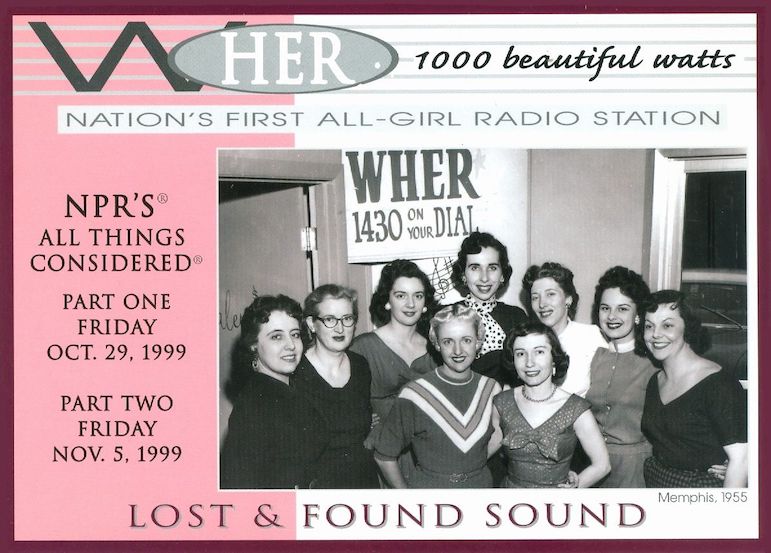
“A lot of it was based on those early radio shows that we were doing with home recordings and archival audio,” Silva said. “And that’s what gave us this idea … ‘This must be in everybody’s attic. Let’s ferret out this material and see if we can create some stories.’”
In 1999 the series aired weekly on All Things Considered, and NPR opened up its phone lines and invited listeners to share their stories. All three collaborators describe the experience of working on Lost & Found Sound as transformative.
“I think it was this revelation of what happens when people are part of the storytelling process, and when people help lead the storytelling process … when the medium is opened up as wide as it possibly can be,” Nelson said.
After 9/11, the team used the same approach for the Sonic Memorial Project, which resulted in another Peabody Award. Allison remembers hearing people call in to share final voicemails left by loved ones who died in the attack.
“They would start crying on the phone. They’d say, ‘It’s all I have left,’” Allison said. “We found out that the power of the human voice was uncanny in a way we hadn’t expected.”
‘Ton of value’ as an ethnographic archive
Those voicemails are among more than 7,000 hours of audio recordings that the Library of Congress has acquired.
“They have a massive amount of material,” said Jesse Hocking, accessions archivist for the American Folklife Center. “We’re going to start with the digital content because that’s the most ready to go.” Administrative documents, grant files, story notebooks and non-digital recordings will be shipped to the Library in stages.
Hocking said the handwritten story notebooks help paint a richer picture of the oral histories and of how The Kitchen Sisters approached their work.
“[They would] include photos of people they interviewed and then write a little description. They included a lot of business cards of people they met along the way,” Hocking said. The collection includes “a lot of really good documentation that tells the inner workings of how these incredible stories were made,” he said.
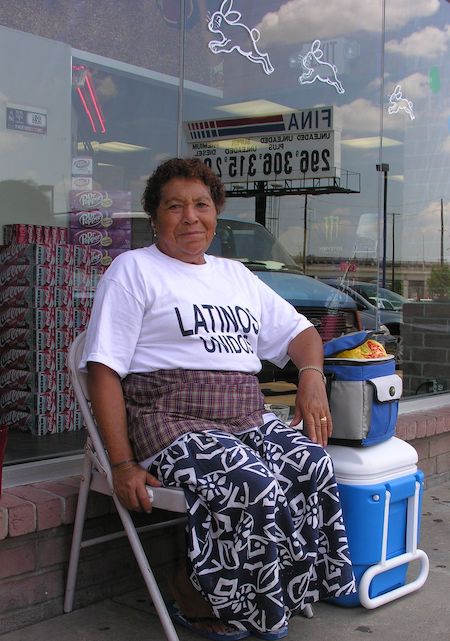
Acquiring the collection furthers the Center’s mission of expanding the idea of what it means to be an American, representing many different cultures and points in history, Hocking said.
“It has a ton of value, not only for their place in radio history as pioneering women in the field, but also for us as an ethnographic archive of the … lives of everyday people in America,” he said. “I think they have a real penchant for finding underrepresented voices and elevating their stories.”
The Kitchen Sisters are still hard at work and show no sign of slowing down. They produce The Kitchen Sisters Present, a biweekly Radiotopia podcast, and a weekly radio show on KSQD in Santa Cruz.
They’re also collaborating with Nigerian American artist Sitalbanat Muktari, theater director Ellen Sebastian Chang and choreographer Amara Tabor-Smith on a multimedia project about archiving Black women’s stories, House/Full of Black Women. They’re also working on stories about women architects, climate change, a Manhattan community garden and musician Knox Phillips. And they’re writing their second book about their careers in radio, called Show the Girls the Snakes.
“I don’t think we’ll retire at all,” Nelson said. “Our lives are our work; our work is our life.”


